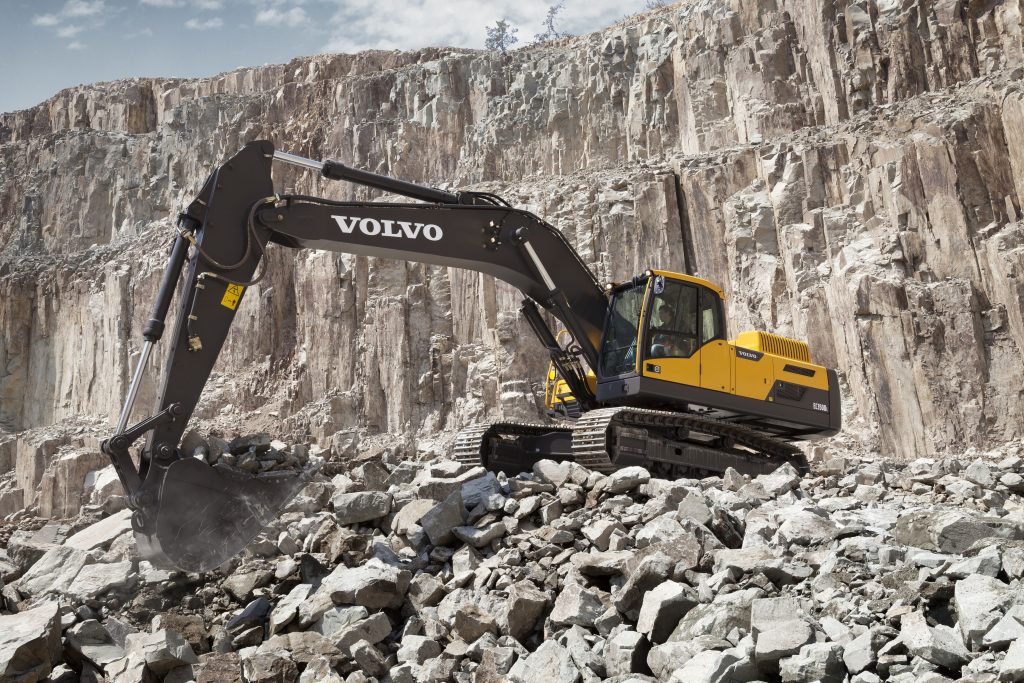Mobile Equipment Operator Verification of Competency Project
DR ELIZABETH GIBSON, General Manager CMPA details the latest safety project that CMPA is undertaking: Mobile Equipment and Road Trucks Operators Verification of Competency Framework.
Introduction
The CMPA has commenced a project using its Policy and Special Issues fund (from a percentage of Membership fees accrued over the years) for the framework to conduct verification of competency of mobile equipment and road trucks operators.

Rationale
There is considerable ambiguity amongst members as to what is required to deem a mobile equipment operator competent.
It is generally considered that operators must hold a Verification of Competency (VOC) issued by a Registered Training Organisation (RTO).
It is understood that the VOCs conducted by RTOs are not specific to the quarry environment, taking into account risks such as working under faces, working on elevated stockpiles, working close to edges, loading both road and haul trucks and so forth.
Some CMPA members have reported that they are:
• Using external RTOs to assess workers at considerable cost, and in some cases finding the workers leave the company to seek higher wages on civil projects;
• Employing operators with a VOC issued by an RTO only to find the operators do not demonstrate the required skills;
• Conducting internal VOCs using a documented assessment conducted by an experienced operator who is deemed competent to do such.
The Victorian Occupational Health and Safety Regulations 2017 OHS Regulations):
• Require workers to hold High Risk Work Licences to operate some specific mobile equipment or plant such as forklifts, elevated work platforms with a boom length of 11 metres or more, boom mounted concrete pumps, various crane configurations and so forth;
• Require employers to provide such information, instruction, training or supervision to employees as is necessary to enable those employees to perform their work in a way that is safe and without risks to health;
• Don’t provide a definition of competence or list requirements or guidance in regards to ensuring the competency of operators of mobile equipment that is not classified as High-Risk Work.
Road trucks transporting materials to work sites are an essential element of the construction materials industry.
To drive a road truck with a Gross Vehicle Mass (GVM) greater than 4.5 tonnes a Victorian heavy vehicle licence being Light Rigid (LR), Medium Rigid (MR), Heavy Rigid (HR), Heavy Combination (HC) or Multi Combination (MC) is required.
A driver may hold one of these licences but may not understand the hazards and how to control the risks associated with the specific configuration such as tippers or agitators.
Objective
• A formal and documented training and supervision process for mobile equipment operators who cannot otherwise provide evidence of their experience and competence in operating the particular mobile equipment or road truck configuration;
• A VOC assessment process for mobile equipment operators and road truck drivers directed by a Subject Matter Expert (SME) as deemed by the Member.
It is intended that these processes shall support Members in providing instruction, training, supervision and assessment of competency for operators and drivers to enable them to perform their work in a way that is safe and without risks to their fellow workers or the community.
Specific project goals
Provide a Guideline that details responsibilities, processes, and the required documentation inclusive of:
• Training Program incorporating best practice and including Logbook completed after each shift by trainer and trainee, listing hours logged, lessons learnt and opportunities for improvement.
• VOC Assessment Sheets for mobile equipment, articulated and rigid where relevant. These would be generic in areas such as prestart and traffic interaction but specific to the operational skills and best practice as required for each mobile equipment type.
• Competence of Assessor i.e., Subject Matter Expert (SME) deemed competent by the Quarry Operator based on years of experience, RTO issued VOC, ability to communicate and demonstrates objectivity.
Scope
The scope of this project is inclusive of:
• Establishing a training process and pre-VOC Logbook for Mobile Equipment Operators;
• Appointing a SME;
• Conducting a VOC assessment.

Steps
- Establish CMPA quarry operator consultation team.
- Collect relevant documentation from 2-3 quarry businesses.
- Research other examples of VOC assessments, for example, manufacturers of mobile equipment.
- Mobile equipment coverage to encompass articulated and rigid where relevant,
• Dozer;
• Skid steer;
• Front end loader;
• Forklift;
• Dump truck;
• Telehandler;
• Grader;
• Excavator;
• Raw materials truck;
• Concrete agitator. - Establish VOC guidelines with agreed attachments such as Training Logbook, Assessment Sheets, and Training Matrix.
- CMPA approved Draft Guideline and documentation to be reviewed by WorkSafe VIC and amended where relevant.
- Trial and finalise.
Support
There has been strong support for the Project at the Earth Resources Tripartite Safety meeting, WorkSafe Victoria (Dr Elizabeth Gibson and Gavin Moreira represent CMPA Members) and at the Australian Mining and Automotive Skills Alliance Strategic Workforce Advisory Panel (Dr Elizabeth Gibson represents the Australian extractive industry).
Timing
The intent is to launch the Mobile Equipment Operators Verification of Competency framework end June 2024.









You must be logged in to post a comment Login